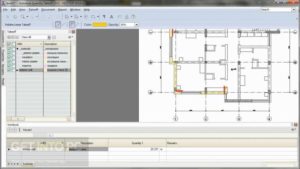
Thus exactness of determining the expense of future tasks is imperative to the achievement of the business or association including in future development ventures.Ī Professional Quantity Surveyor has an exhaustive information on development,ĭevelopment strategies, neighborhood laws identifying with development ventures and bookkeeping, in request to give cost and monetary counsel.

Significant part of Quantity Surveyors is to gauge the expense of the proposed fabricating Įmpowering the temporary worker to assess and decide the attainability of the undertaking. For more information, see To Calculate Volumes for Overlapping Materials or Overhangs.Welcome to the universe of Computer Aided Building Estimation and Costing. Optionally, repeat Steps 7 through 13 to create all required materials and surfaces.For each data type added to a material, click the Condition field.In the Select Shape list, enter the shape name or select a shape. Select Corridor Shapes from the Data Type list. If you selected a quantity type of Structures, to add corridor shapes, select the new material.In the Select Surface list, enter the surface name or select a surface. If you selected a quantity type of Cut, Fill, Cut and Refill, or Earthworks to add surfaces, select the new material.Optionally, edit the cut, fill, and refill factors by selecting the corresponding fields.For more information about using Shape Styles to review material calculations graphically, see To Review Sectional Volume Results Graphically. Select the default style used to display the material section in a section view.

Select the quantity type, either Cut, Fill, Cut and Refill, Earthworks, or Structures.

To create a new quantity takeoff criteriaĬreate quantity takeoff criteria as the first step in analyzing sectional material volumes.Īfter you create a quantity takeoff criteria, you can apply it to a sample line group to create a material list.


 0 kommentar(er)
0 kommentar(er)
